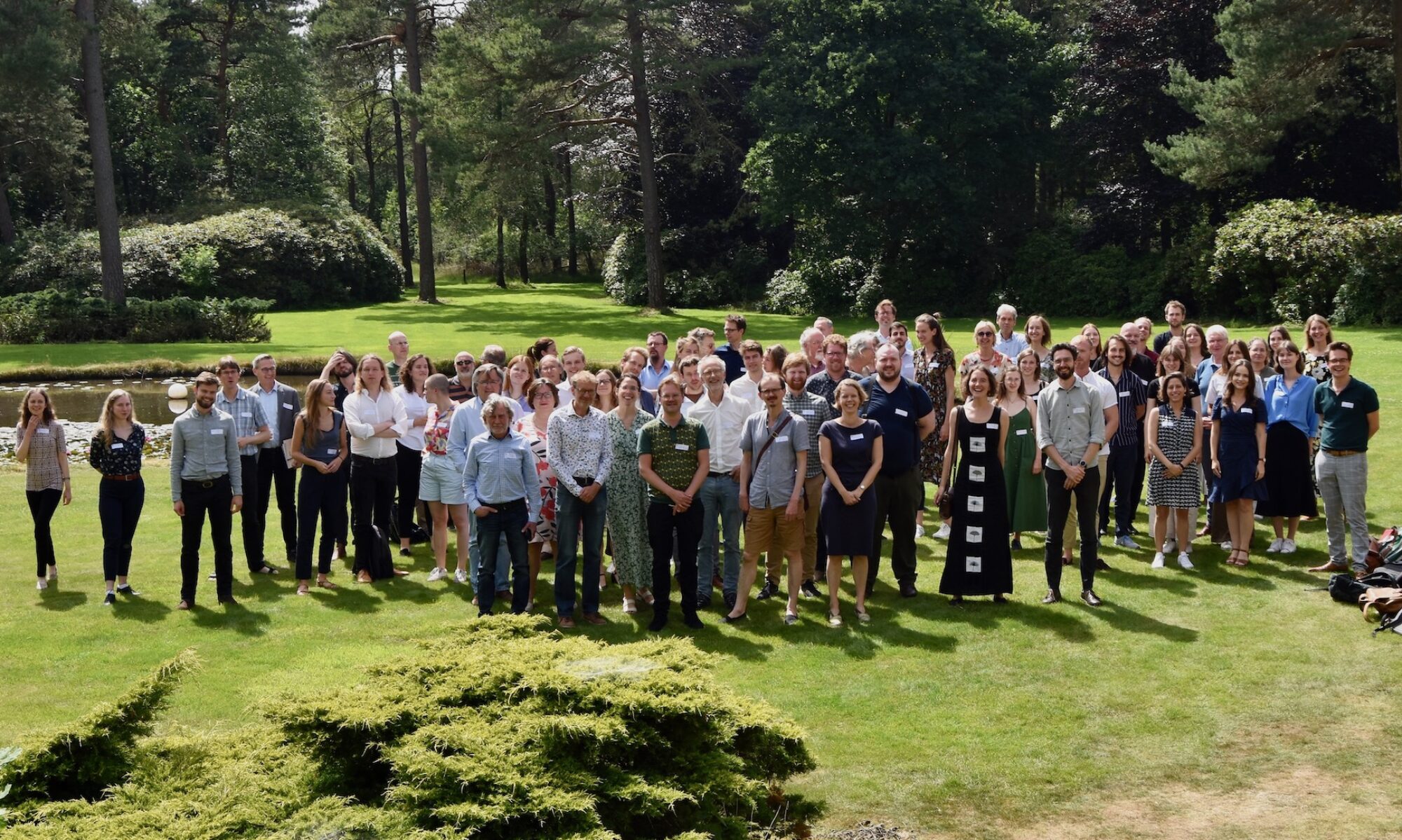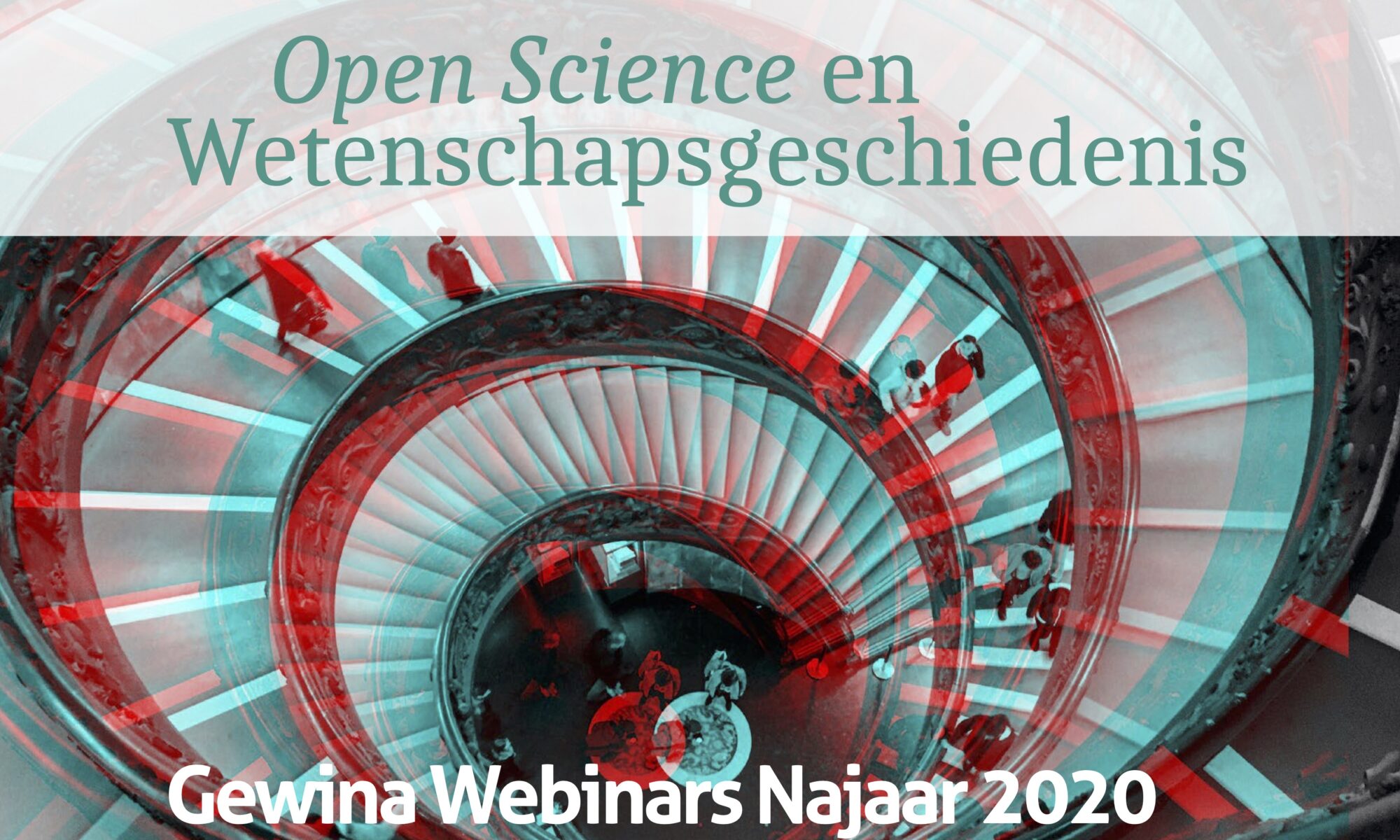Webinarserie: Open Science en Wetenschapsgeschiedenis
Na een succesvol begin eerder dit jaar biedt Gewina een tweede serie webinars aan, ditmaal gewijd aan Open Science.
De laatste jaren lijken hervormingsbewegingen die zich richten op structurele veranderingen van het wetenschapssysteem steeds meer aan terrein te winnen. De Open Science-beweging is daarvan misschien wel de opvallendste. Deze losjes georganiseerde groep wetenschappers maakt zich hard voor een meer transparantie in en over wetenschappelijk onderzoek.
Dat is meer dan louter een reactie op de replicatiecrisis in de sociale wetenschappen. De ambitie van de Open Science-beweging is ook om onderzoek en samenleving beter op elkaar aan te laten sluiten.
Het wordt tijd dat ook wetenschaps- en universiteitshistorici zich gaan mengen in deze beweging. Daarom heeft Gewina een aantal mensen gevraagd om te reflecteren op zowel de idealen als de concrete oplossingen die Open Science-hervormers voorstellen.
Dat doen we in een serie van vijf maal twee lezingen, gegeven door zowel wetenschapshistorici als andere specialisten. Elke ‘sessie’ bestaat uit twee lezingen van ongeveer twintig minuten, waarna we twintig minuten inbouwen voor vragen. De voertaal is Nederlands en Engels (met een * aangegeven).
Sessies
22 januari 2021, 15.00 uur (online)
Wetenschapsgeschiedenis & Open Science-beweging
Sprekers: Dorien Daling en Frank Miedema
Zoom-link (vanaf vrijdag 14.40 toegankelijk):
https://knaw-nl.zoom.us/j/92720432042
Meeting ID: 927 2043 2042
Passcode: 694988
Abstract
Transition to Open Science
The dramatic effects of the COVID-19 pandemic have made it very clear that despite our socioeconomic progress there still is widely felt uncertainty, loss control and loss of social belonging and structure. The many old small and known risks may be controlled for, but the small chance of a huge global problem apparently is beyond control. The world has changed to global hypermodernity were time, place and space have different meanings. This is driven by science and technology which made our life easier, brought us on average worldwide better socioeconomic living conditions, longer life expectancy in good health and many technologies that makes our life easier to live. It also changed human relationships and disturbed geopolitical relations and ecosystems. Science has the responsibility to work on the grand challenges of our time, like global public health including mental health, climate change, socioeconomic inequality, and threats to democracy and to open societies. To be better suited to do so, however, we cannot rely on science as it has been practiced until now. It is the promise of Open Science to improve the practice of science, the life of scientists and the relationship with stakeholders in society who are counting on science to improve society, social life and their life.
To understand what interferes with optimal impact of our research, we have to deeply reflect on the current practice of knowledge production and our relationship with stakeholders in society. It is argued that the classical positivistic image of science is still dominant in academia and society, despite it being based on philosophy and sociology long ago shown to be obsolete in the descriptive and the normative. This ideology of science is shown however, until this day, to distort the social structure and academic culture of universities, because of perverse and improper incentives and rewards, driving hyper-competition instead of teamwork. Moreover, it interferes with the way of doing science with proper inclusive agenda setting. It is not compatible with the need for societal impact and thus not helpful for building of trustful relationships between science and society.
Based on a thorough analysis, and the author’s personal experiences in aids research, university administration and as a science observer, a realistic narrative is proposed about how research is done, and reliable ‘objective’ knowledge is produced, while being totally open regarding what its limitations are. This idea of science, which draws heavily on American pragmatism, fits with the global Open Science movement. It will be argued that Open Science is historically a truly unique movement in that it translates the analysis of the problems of science into actions of system change and of academic culture, engaging stakeholder from society and the actors in the field of science and academia.
Download de flyer
Webinar 1
13 november 2020
Open Science als historisch fenomeen
Webinar 2
27 november 2020
Het ideaal van een open wetenschap
Webinar 3
11 December 2020
Open Science publiceren
Webinar 4
15 januari 2021
Open Science als Eurocentrisch fenomeen


